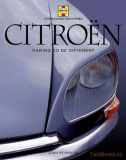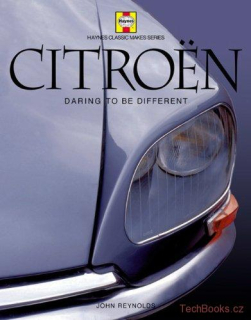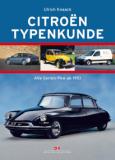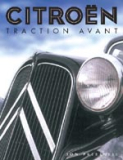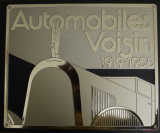E-shop
- * CD/DVD/BLU-RAY
- * Dárkové poukazy
- * Kalendáře
- * Magazíny
- * NAVIONICS
- * Plakáty a grafické listy
- * Prospekty a brožury
- * Slovníky
- ATV, čtyřkolky, sněžné skůtry
- Autobusy, tramvaje, trolejbusy
- Automobily osobní a dodávky
- _Automobilová technika
- _Autokatalogy
- _Caravaning
- _Design
- _Elektromobily & hybridy
- _Karosárny & karosáři
- _Osobnosti & konstruktéři
- _Repliky / kitcars / stavby
- _Sbírky a muzea
- _Sport
- _Veteráni
- Abarth
- AC
- Acura
- Adler
- Aero
- Africar
- Alfa Romeo
- Allard
- Allstate
- Alpine
- Alvis
- AM General
- AMC
- Americké automobily
- Armstrong Siddeley
- ARO
- ASA
- Aston Martin
- Auburn
- Audi
- Austin
- Austin-Healey
- Austro-Daimler
- Auto Union
- Autobianchi
- Ballot
- Bantam
- Barkas
- Bedford
- Bentley
- Benz
- Berkeley
- Bitter
- Bizzarrini
- BMW
- Bond
- Borgward
- Brabham
- Bricklin
- Bristol
- British Leyland
- BRM
- Brough Superior
- BSA
- Bugatti
- Buick
- Cadillac
- Callaway
- Caterham
- Citroen
- Cisitalia
- Clan
- Colt
- Cord
- Crosley
- Crossley
- Cunningham
- Dacia
- Daewoo
- DAF
- Daihatsu
- Daimler
- Dallara
- Darracq
- Datsun
- De Dietrich
- De Dion
- Delage
- Delahaye
- DeLorean
- Denzel
- DeSoto
- De Tomaso
- Diatto
- Dixi
- DKW
- Dodge
- Duesenberg
- Eagle
- Edsel
- Elva
- EMW
- ERA
- Excalibur
- Facel Vega
- Falcon
- Ferrari
- Fiat
- Ford
- Ford USA
- Frazer-Nash
- FSO Fiat Polski
- General Motors
- Genesis
- Geo
- Ginetta
- Gilbern
- Glas
- GMC
- Goggomobil
- Goliath
- Gutbrod
- Hanomag
- Hartnett
- Healey
- Henney
- Hillman
- Hino
- Hispano Suiza
- Holden
- Hommell
- Honda
- Horch
- Hotchkiss
- Hudson
- Humber
- Hummer/Humvee
- Hyundai
- Checker
- Chevrolet
- Chrysler
- Chrysler Europe
- IFA
- Imperial
- Ineos
- Infiniti
- Innocenti
- Intermeccanica
- International
- Invicta
- ISO
- Isotta-Fraschini
- Isuzu
- Itala
- Iveco
- Jaguar
- Jawa
- Jeep
- Jensen
- Jowett
- Kaiser-Frazer
- Karmann
- KdF
- Kia
- Lada/VAZ
- Lagonda
- Lamborghini
- Lancia
- Lanchester
- Land Rover
- Laurin-Klement
- La Salle
- Lea-Francis
- Lexus
- Light Car Co.
- Ligier
- Lincoln
- Lloyd
- LMX
- Locomobile
- Lola
- London Taxi Intl.
- Lotus
- Marendaz
- Marcos
- March
- Marmon
- Maserati
- Matra-Simca
- Maybach
- Mazda
- McLaren
- Mercedes-Benz
- Mercury
- Messerschmitt
- Metalex
- MG
- Mini
- Mitsubishi
- Monica
- Monteverdi
- Moretti
- Morgan
- Morris
- Moskvič
- Muntz
- Nash
- Nissan
- Noble
- NSU
- Oldsmobile
- Oltcit
- Opel
- OSCA
- Packard
- Pagani
- Panhard
- Panoz
- Panther
- Peerless
- Pegaso
- Peugeot
- Park Ward
- Pierce-Arrow
- Plymouth
- Pontiac
- Porsche
- Praga
- Puch
- Puma
- Rambler
- Range Rover
- Reliant
- Renault
- Proton
- Railton
- Riley
- Riva
- Rochdale
- Rolls-Royce
- Rover
- Röhr
- Saab
- Sachsenring
- Saturn
- Scioneri
- Seat
- Shelby
- Schustala
- Simca
- Singer
- Smart
- Spyker
- Standard D
- Standard GB
- Stanguellini
- Steyr
- Studebaker
- Subaru
- Stutz
- Sunbeam
- Suzuki
- Swallow
- Syrena
- Škoda
- Talbot
- Tarpan
- Tatra
- Terraplane
- Tesla
- Tojeiro
- Toyota
- Trabant
- Trident
- Triumph
- Tucker
- TVR
- Tyrrell
- UAZ
- Unipower
- Vanwall
- Vanden Plas
- Vauxhall
- Vector
- Venturi
- Voisin
- Volha / GAZ / Čajka
- Volkswagen
- Volvo
- Walter
- Wanderer
- Wartburg
- Warszawa
- Wiesmann
- Wikov
- Westfield
- Williams
- Willys
- Wolseley
- Yugo/Zastava
- Zagato
- ZAZ
- Zbrojovka
- ZIL
- Zimmer
- Automobily nákladní a tahače
- Cyklistika
- Hudební nástroje, hudba
- Letectví, kosmonautika
- Lodě, lodní technika
- Malá motorová technika
- Modely a sběratelství
- Motocykly
- Počítače, IT
- Traktory, zemědělská technika
- Železniční technika, vlaky
- Zbraně, vojenská technika
- Zdraví, domácnost, sport


![]()



![]()


![]()

![]()

![]()



Úvod »Automobily osobní a dodávky»Škoda » André Lefebvre, and the cars he created at Voisin and Citroën
Anotace
| Vazba: | Vázaná | ||
| Počet stran: | 144 | ||
| Rozměry v mm: | 170 x 240 | ||
| Počet obrázků: | 130 | ||
| Rok vydání: | 2014 | ||
Features
• A fascinating inside story about the technical progress of the French automobile industry between the two world wars
• Interesting but little known facts about the cars that André Lefebvre designed and the way he inspired his engineering team
• Clear descriptions of the technical development of the various cars that Lefebvre masterminded
• Covers the history of front wheel drive from 1896
• Explores advantages and limitations of the now almost extinct sleeve valve engines
• Over 125 photographs and drawings – some from André Lefebvre’s personal archives
Description
This biography of André Lefebvre gives a revealing insight into the work of a practically unknown aeronautic engineer who, after building and racing competition cars for Gabriel Voisin in 1933, created for André Citroën the revolutionary front wheel drive Traction Avant (light fifteen in the UK). He was responsible for the minimalist 2CV and the Citroën DS, which was the sensation of the automotive world in 1955, and is still an icon of original automobile engineering and avant-garde design today.
Synopsis
Together with his colleagues at Citroën, Andre Lefebvre created the Traction Avant (1934), the TUB (1939) – Citroën's first front wheel drive utility van that was succeeded by the H and HY vans (1947) – the Deux Chevaux (1948), and, last but not least, the DS (1955).
From 1923 to 1931 Lefebvre also designed several highly original and outstanding competition cars and record-breaking automobiles for Voisin. He even drove some these cars in races and record attempts. It is obvious that during his 16 years with Gabriel Voisin he was very much influenced by the ideas of this illustrious aviation pioneer and car manufacturer.
The experience gained during that period gave him the self-confidence to persuade his successive bosses at Citroën that his unorthodox approach to automobile design was what the company needed; first he convinced André Citroën, later Pierre Michelin, then Pierre-Jules Boulanger, and finally Robert Puiseux and Pierre Bercot.
His oeuvre for Citroën alone earns him a place of honour among the great automobile designers of the past century. The fact that most present-day cars still carry the DNA of his design philosophy makes him stand out above other automotive pioneers and innovators. That is why it is amazing that so little is known about this fascinating and brilliant engineer.
This book was written in order to remedy that, and to pay tribute to André Lefebvre: the passionate pioneer who left car enthusiasts around the world such an important heritage.


